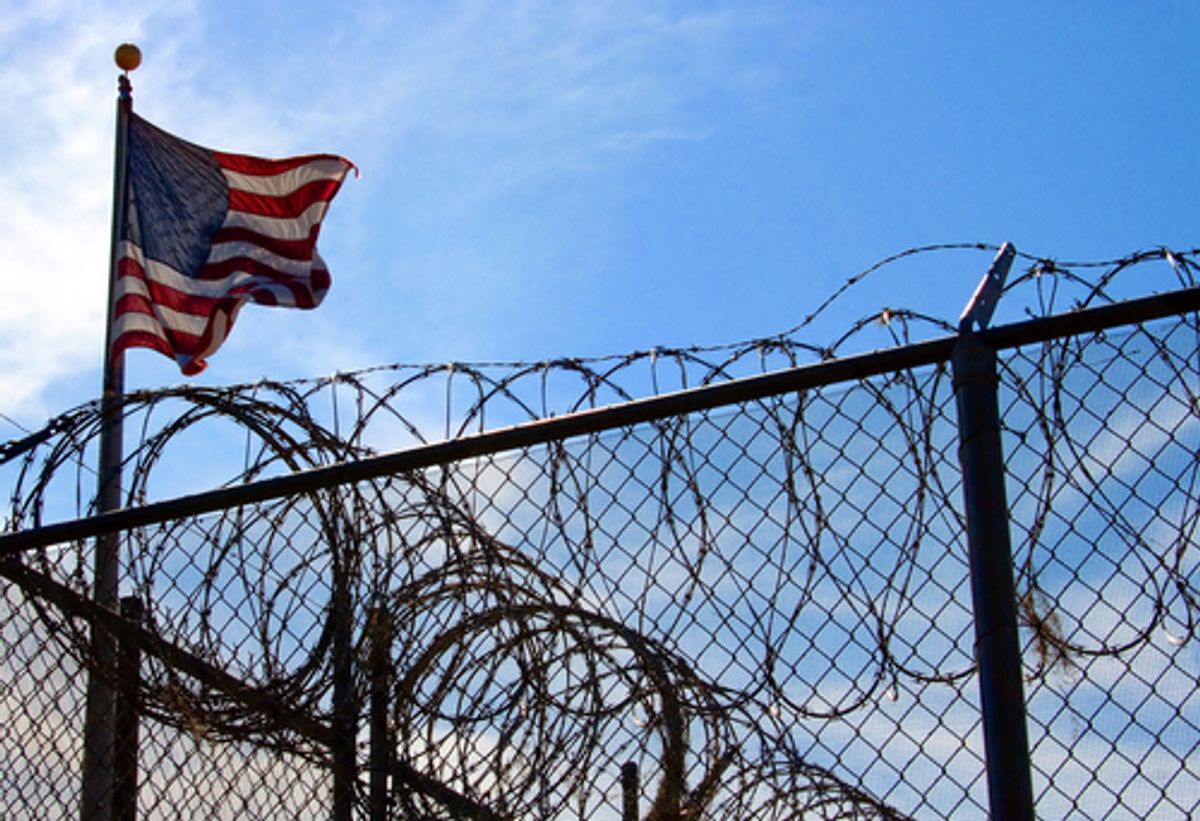In the April issue of Rolling Stone, Matt Taibbi eviscerates California's tough-on-crime "three strikes" rule, which sees thousands of individuals -- largely poor and black -- held in state penitentiaries for decades over minor offenses, like stealing a pair of socks worth $2.50. Taibbi explains that by the late '90s, 24 states and the federal government had some kind of "three strikes" law, with California's iteration the harshest of all.
In his feature, that is well worth reading in full, Taibbi writes:
And it isn't just in California, but all over the country, where there are countless instances of outrageous and brutal mandatory sentences for relatively minor crimes. Often, they're so ridiculous that even the judges imposing them publicly denounce them, like a 1997 Florida case in which a 27-year-old black woman named Stephanie George was given life for holding her boyfriend's cocaine stash. "Your role has basically been as a girlfriend," said Judge Roger Vinson, "so it does not warrant a life sentence." But Vinson had no choice, just like Massachusetts Judge Judd Carhart had no choice when he gave 48-year-old Michaelene Sexton 10 years for selling coke ("Ten years is an awful long time," the judge said. "When I look at this case compared to crimes of violence, I wonder"), or federal Judge James Todd, who gave a Texas pool-hall owner named Mike Mahoney 15 years for buying a gun 14 years after he was convicted for selling meth ("It seems to me, this sentence is just completely out of proportion to the defendant's conduct," said the judge).
Why did all of this happen? Some of this has its roots in a complex political calculation, in which the Democratic Party in the Clinton years made a Faustian bargain, deciding to abandon its old role as a defender of unions and the underprivileged, embrace more Wall Street-friendly deregulatory policies, and compete for the political center by pushing for more street cops, tougher sentences and the end of welfare – the same thing the Republicans were already doing. By the mid-Nineties, neither party was really representing, for lack of a better term, the fucked, struggling poor.
The end result of this political shift was an unprecedented explosion of the American prison population, from just more than a million people behind bars in the early Nineties to 2.2 million today. Less than five percent of the world's people live in the United States, but we are home to about 25 percent of the world's prisoners, a shocking number.
Another result was that instead of dealing with problems like poverty, drug abuse and mental illness, we increasingly just removed them all from view by putting them in jail. It's not an accident that so many of the most ridiculous Three Strikes cases are semicoherent homeless people or people with drug problems who came from broken homes. It wasn't a cost-efficient way of dealing with these issues – in fact, in California at least, it was an insanely, almost criminally expensive burden on taxpayers – but it was effective enough as a way of keeping the uglier schisms of our society hidden from view.



Shares